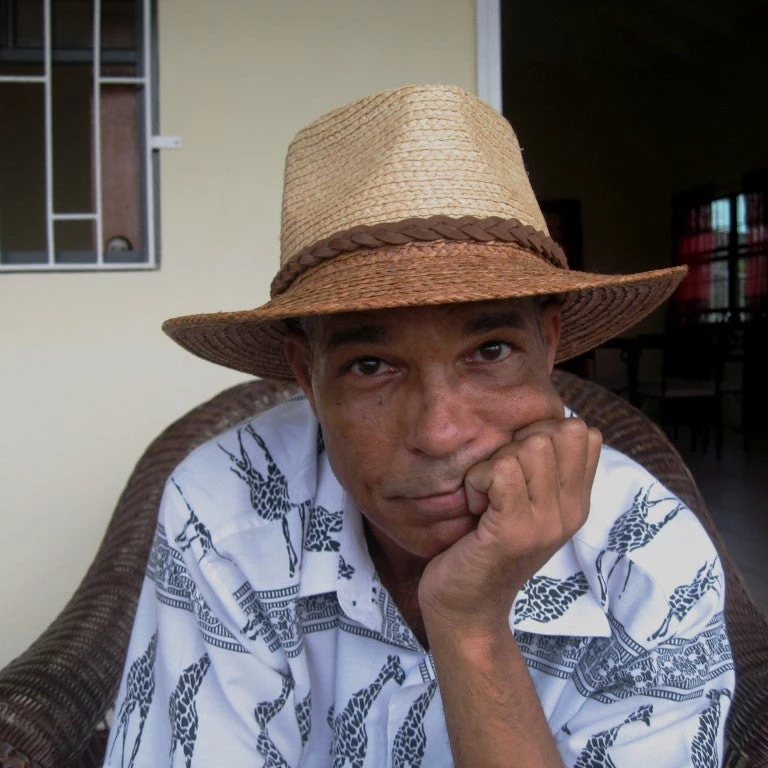
Photo: Diana Susselman | Flickr Creative Commons
I worked with the International Finance Corporation (IFC) for exactly 20 years, all of which was in advisory work. I spent five years in Barbados, five in Washington, five in Zimbabwe and five in South Africa: perfect symmetry. On my 20th anniversary, I took a package and returned home, to the beautiful Caribbean. IFC was a great place to work, where we were challenged every day to come up with innovative solutions to seemingly intractable problems. Some of our deals were truly groundbreaking and lived up to IFC’s motto to improve people’s lives. That’s the kind of job satisfaction that money can’t buy.
After 76 countries, millions of air miles, and some pretty forgettable airport hotels, sometimes I look back and think: what was it all about?
1. Be liked

Advisory work requires good people skills. At the end of the day, people hire you because they believe in you, that you can do the job. But also because they trust you. I once went into a meeting with the late Minister Ken Valley in Trinidad wearing a Mickey Mouse tie. My colleague thought I was being disrespectful but as soon as we walked into his office the minister said: “I like your tie!” He was wearing his political party tie with a heliconia flower motif and I said I liked his too (although I thought it inappropriate for him to be wearing a party tie). He asked if I wanted to swap ties which we did, instantly becoming best of pals. I never did wear his tie, and it took a while to replace Mickey.
2. Be local
Find out what’s going on in the country you’re working in—quickly. Your best source of information is your taxi driver: have a regular one, know their name, and they yours. Your next best source is the person you met in the pub. Stay at the same hotel when you visit, know the staff. Take your clients to dinner, accept their invitations. Explore the culture, the music, impress people with your knowledge. Talk to everyone; high and low. It’s amazing how “small” bits of information you pick here and there can turn out to have a big impact on your deal—for better or worse.
3. Be the leader
The client expects you to take charge; so do so. Set tasks and timetables, delegate, lead meetings, provide regular feedback: to the client, your team, and your boss. Talk to the press but watch your words, preferably have them written out. Get vexed when you must; praise performers. Part of your “team” includes staff from your client’s team, bring them in the tent. A leader is a shepherd—lining up a herd of recalcitrant sheep to head in the same direction, some of whom you have no control over whatsoever.
4. Be humble...
The single most common complaint about international advisors in the field boils down to one word: arrogance. Across countries and continents, we have a reputation for having a high-handed way of dealing with locals. Is this deserved? In many cases, yes it is. I’ve seen it many times, often in the person standing right next to me. Let’s face it: nobody likes being talked down to by some arrogant foreigner—especially when that arrogant foreigner comes with their own issues or past experiences.
5. ... But confident
Which means: know your stuff. At this level you can’t bluff; people will see through you in an instant—including your client. Get to know all about your project, and then some. Do your research, stay up late, so that you speak with knowledge, not bluster. And when you don’t know something, don’t be afraid to say so —but that you’ll learn. Quickly.
6. Be flexible...
There are no cookie-cutter mandates; they’re all different. Even though you may know everything about water companies, you don’t know anything about this water company. Read up; listen to local knowledge; adapt as necessary.
7. ... But firm
Don’t compromise your core principles of fairness and transparency. Sometimes you have to dig your heels in: just say no. At the end of the day it’s your name and reputation on the line, and when you’re advising on transactions that involve hundreds of millions of dollars, it’s not unheard of for people to play games, to try and get an advantage, either for themselves or their “associates”. Don’t be afraid of uttering the words: “Minister, it’s your country and you can do whatever you wish, but if you wish to do that, then you’ll have to do it without (name your advisory firm here).”
And mean it.
8. Prepare to be ignored
Advisory business is just that: advisory. And sometimes your client won’t take your advice, no matter how correct it may be: “We hear you, but we’ll do it our way, thank you.” Which, in the long run, might just turn out to be the right way—for them. Don’t get your nose all out of joint. Stuff happens. Get over it and move on; what’s another year of your professional life wasted?
9. Make the most of what you’ve got
Most infrastructure projects in emerging markets are far from perfect: all are beset with “challenges” —i.e. warts, stumbling blocks, and deal-breakers. The project that you are trying to convince people to invest millions of dollars in will invariably not be worth anywhere near the vast sums that your government client is anticipating. Expect low demand, then you won’t be disappointed. Even though you may start out with 10 bidders, chances are on bid day less than half of them will turn up.
10. And finally: Be not afraid
Don’t think outside the box—live it. When I joined IFC in 1988, conventional wisdom was that the best place to get promoted was in Washington, where you could get noticed. I headed in the opposite direction. I didn’t join the World Bank Group to stay in Washington. In the 90s when all the action was in Eastern Europe and Latin America, I went to Africa. I preferred the road less traveled.
When I won a mandate to advise South African National Parks (SANParks) on bidding out ecotourism concessions in Kruger National Park, my director said we shouldn’t take on the mandate because we knew nothing about ecotourism. I said that’s exactly why we should. It turned into a highly successful model for public-private partnerships in protected areas.
Do you have your own examples of taking the road less traveled? What is your creed? Take a minute to share it below.
Disclaimer: The content of this blog does not necessarily reflect the views of the World Bank Group, its Board of Executive Directors, staff or the governments it represents. The World Bank Group does not guarantee the accuracy of the data, findings, or analysis in this post.
Related Posts
Vlog voice from the field: Reflecting on the Caribbean PPP bootcamps
10 candid career questions with PPP professionals – Brian Samuel
PPPs in the Caribbean: Filling the gap


Join the Conversation